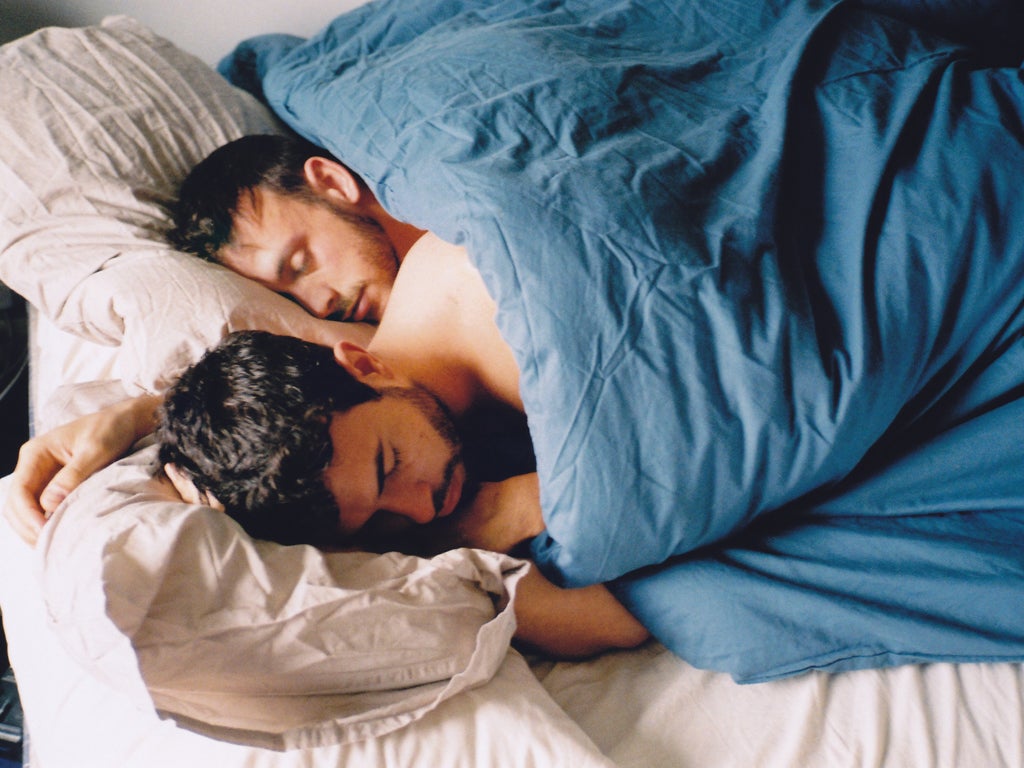Weekend, Andrew Haigh, 96 mins (18)
A casual encounter that unexpectedly grows into real affection speaks to all of us, gay or straight

There's a certain kind of film that's notoriously difficult to pull off, requiring considerable wit, skill and delicacy.
Any director who manages it stands a chance of achieving something really special. I'm talking about the genre sometimes known as the Two-People-Talking-In-A-Room Movie – no frills, no distractions, not even necessarily a plot, just two people revealing their own personalities, each bringing out something unsuspected in the other.
British drama Weekend is a superb example of the genre. Andrew Haigh's low-budget feature has already been described more than once, not inaccurately, as a gay Brief Encounter – although Celia Johnson and Trevor Howard never had to countenance wolf whistles from passing homophobes. Weekend is about what happens when two people meet, sleep together, then realise they're more attracted than they expected to be – in fact, pretty much the theme of your average present-day mainstream romcom. But Weekend takes the topic seriously, and suggests that in a liberated world where casual sex is no big deal, the truly taboo subjects are the need for love, and the cold truth of ordinary loneliness.
Shot in Nottingham, Weekend is about an affable but diffident young man, Russell (Tom Cullen), who ends his evening at a gay club, then wakes up next morning in his high-rise council flat with the witty, personable Glen (Chris New). They've had a great night, and now Glen wants Russell to contribute to his audio art project: producing a tape recorder, he wants Russell to talk about the previous night's encounter. Russell is nervous about talking explicitly, and perhaps about being just another voice in Glen's vox-pop gallery of conquests. Glen, on the other hand, espouses frankness and knowing yourself: his project is about "what's stopping you being who you want to be".
The two men are very different. Glen is out, proud and sometimes loud, while Russell is self-effacing, almost excruciatingly so, and only partly out. He's happy with himself at home, he says, but in the street, feels exposed and uneasy – a feeling like indigestion, as he puts it in a line of startlingly original insight.
When they meet again later in the day, it's the first time that we see the pair having sex, now with the easy intimacy of two people already comfortable with each other. Later they spend an evening with Glen's friends, visit a funfair, share drugs, have more sex, and above all talk – sometimes banteringly, sometimes earnestly and even angrily about identity politics and their place in a heterosexual world. They display aspects of their personalities that it takes 48 hours of intimacy to unearth – Russell's sense of incompleteness, the prickly vulnerability that emerges from behind Glen's insouciant defiance. By and by, we sense the two clicking far more deeply than either could have expected.
But there's a catch: Glen is about to fly to the States, and the two may never see each other again. Glen insists that he doesn't want a boyfriend – but you feel that Haigh's camera knows a little more than both men about what they really want. We also know what we want for the pair, but this emotionally realistic drama reminds us that life isn't about the easy gratifications of romcom: "Is this our Notting Hill moment?" the pair joke, before admitting they've never seen the film.
Unlike the Richard Curtis cycle, Weekend is palpably about the way real people live, and Haigh and his actors make us feel that we're eavesdropping on a pair that the camera just happens to have picked out in a crowd. Both leads are superb: Cullen's self-doubting but warmly humorous Russell and New's brittle, impassioned Glen are terrifically matched, sharing the chemistry that all screen love stories aspire to but few attain. The sex scenes are tender and celebratory, showing two people having a good time because they enjoy not only each other's bodies but each other's company.
Haigh and photographer Ula Pontikos shoot the talk in long takes, and use an elastic visual language that's more artful than this economic film at first lets you realise – watch what they do with subtle shifts of focus in crowded spaces. The dialogue has a loose, improvisatory-seeming flow, although it's clearly scripted – wittily and sometimes scabrously, with New getting the saltiest lines. At one point, Glen predicts that his audio project won't attract straight audiences, "because it's not about their world". Haigh seems to be voicing his own qualm that Weekend will be perceived purely as a gay film. But Weekend stands every chance of breaking out here as it has in the US, where it has been rightly acclaimed as a high point of the current British cinema renaissance. Whether you're male or female, gay or straight, Weekend is sure to speak to you, and deeply, about aspects of your own life and loves. This intelligent and moving film reminds you that low-budget realism can get into the emotional places that bigger films can't. It's one of the best, and most individual, of the year.
Next Week:
John Walsh is sent back to the book by The Rum Diary and Wuthering Heights
Join our commenting forum
Join thought-provoking conversations, follow other Independent readers and see their replies
Comments
Bookmark popover
Removed from bookmarks